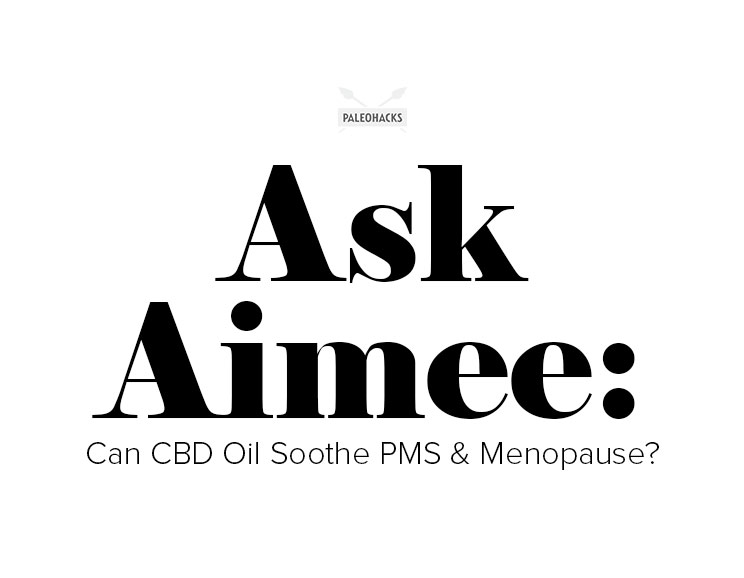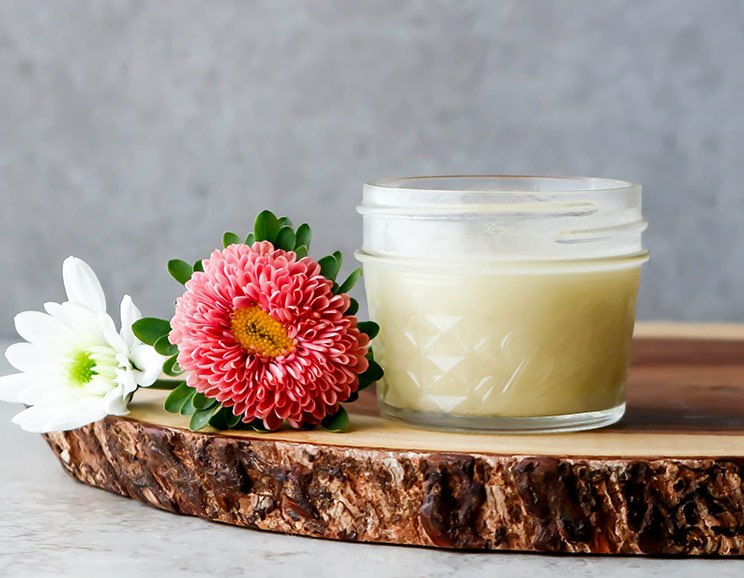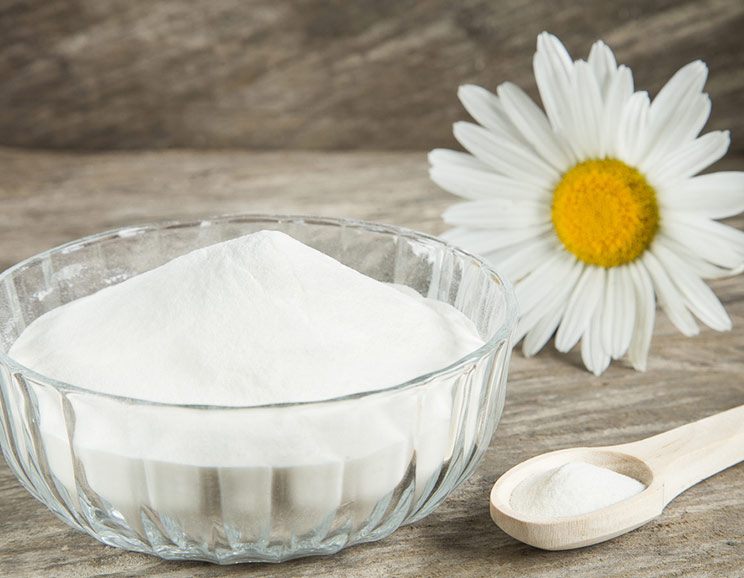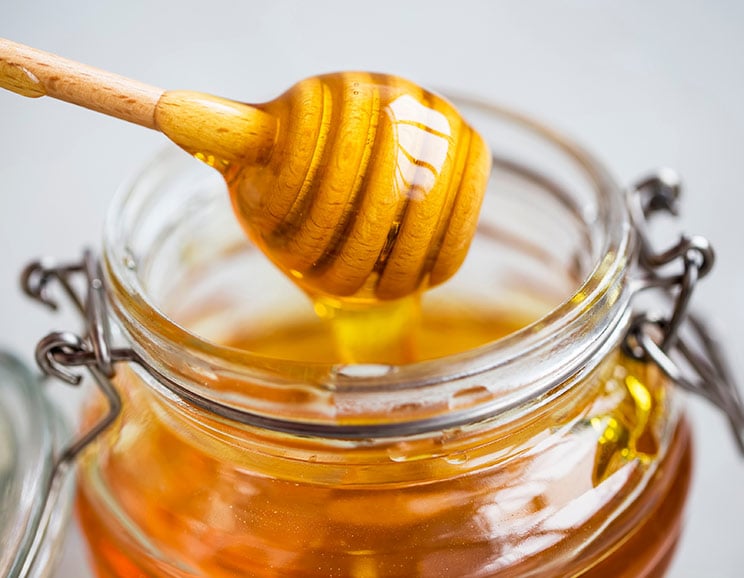I get lots of questions about ingredients that can improve skin health, and yes, coconut oil, avocado, essential oils and raw honey are all winners! But what about ACV?
Apple cider vinegar is the darling of the Paleo world thanks to its amazing ability to boost digestion, support gut health, and even promote natural weight loss, making it a valuable tool for any home medicine cabinet. So, what benefits can it offer your skin?
Much like the gut has a bacterial balance between good and bad, the skin also delicately balances between normal and acidic. When the surface of the skin is acidic, skin problems can result, ranging from mild dryness and irritation to more serious problems, like eczema and psoriasis. Most of the commercial lotions, cosmetics, and other products are harsh and acidic – even if they promise that they’re moisturizing. This is because they contain preservatives, which can dry up the skin.
Love apple cider vinegar? Boost your digestion and lose weight with our Apple Cider Vinegar handbook!
Click here to get your FREE copy of our ACV Guide!
Basically, our skin reacts to ingredients just like our bodies do from the foods we eat. So opting for something that is real food, with few ingredients and no funky-sounding chemicals, is usually going to give you the best results.
Apple cider vinegar can help to restore normal pH balance to the skin. This means that it supports that microbial balance on the skin’s surface that favors the good guys and not the bad ones, just like we want to happen in our microbiome.
If you have eczema, you may have encountered a doctor’s suggestion to use bleach baths. (Yes, I kid you not, many allergists suggest adding chlorine bleach to a bath, daily, to kill the bacteria behind eczema.) My son’s allergist told me to do this with him, but I questioned whether I wanted to expose his already sensitive skin to those chemicals. (The answer was no.)
After a significant amount of research, I found that apple cider vinegar can have the same antimicrobial results while also helping to restore that necessary pH balance. There are no toxic side effects from ACV – the same can’t be said about bleach.
When you have dry skin issues, eczema, or psoriasis, the primary thing you need to remember is that whenever you get out of the shower (or your skin gets exposed to water in any other way), you must get moisturizers in it within a few minutes to prevent further drying. Using apple cider vinegar topically could help to improve skin balance, which might correct some of the underlying problem, as opposed to just moisturizing, which won’t necessarily fix the issue.
If you want to try ACV for your skin health, here are several ways to work it into your skin nourishing routine!
- Facial cleanser and toner: Thanks to the antibacterial nature of ACV, it might be beneficial for acne-prone skin, oily skin, and even dry skin. You can dab ACV on a cotton square or ball and simply swipe it across your problem spots or your whole face. Let dry for 30 to 60 seconds and follow with your favorite facial oil. I personally love jojoba with a drop of lavender essential oil added to it.
- Facial moisturizer: If you have acidic skin or more severe problems, you can actually add a bit of apple cider vinegar to your facial oil for a leave-on moisturizer. Try one-third cup of melted coconut oil mixed with 2 teaspoons or 1 tablespoon of apple cider vinegar (make sure it’s organic, with the “mother” for the good bacterial benefits). You can add two to three drops of a soothing essential oil, like lavender, to offset the vinegar smell. Use this once a day, ideally after your face has been washed, and leave it on overnight.
- Apple cider vinegar bath: If you have eczema or skin issues in several places on your body, try adding ACV to your bath for a therapeutic, skin-cleansing soak. Make sure the water is warm, not hot, and add 2-3 cups of apple cider vinegar to a ¾-full bathtub. You can also add 3-5 drops of lavender essential oil, which is also skin-soothing. Soak for up to 20 minutes, rinse with a cool (not cold) shower, gently pat dry (do not rub), and then moisturize with body oil. Coconut is especially calming for eczema and very dry skin. Emu oil is also thick and absorbent, and a great alternative if coconut doesn’t work for you.
Apple cider vinegar offers a variety of health benefits, both topically and internally, and is a wonderful, soothing remedy to try. A note of caution: test it on your skin before using all over. While it’s rarely irritating, some people could be sensitive. As always, check with your child’s doctor before treating with ACV.
(Read This Next: Ask Aimee – How Do I Get Off My Thyroid Medication?











Show Comments